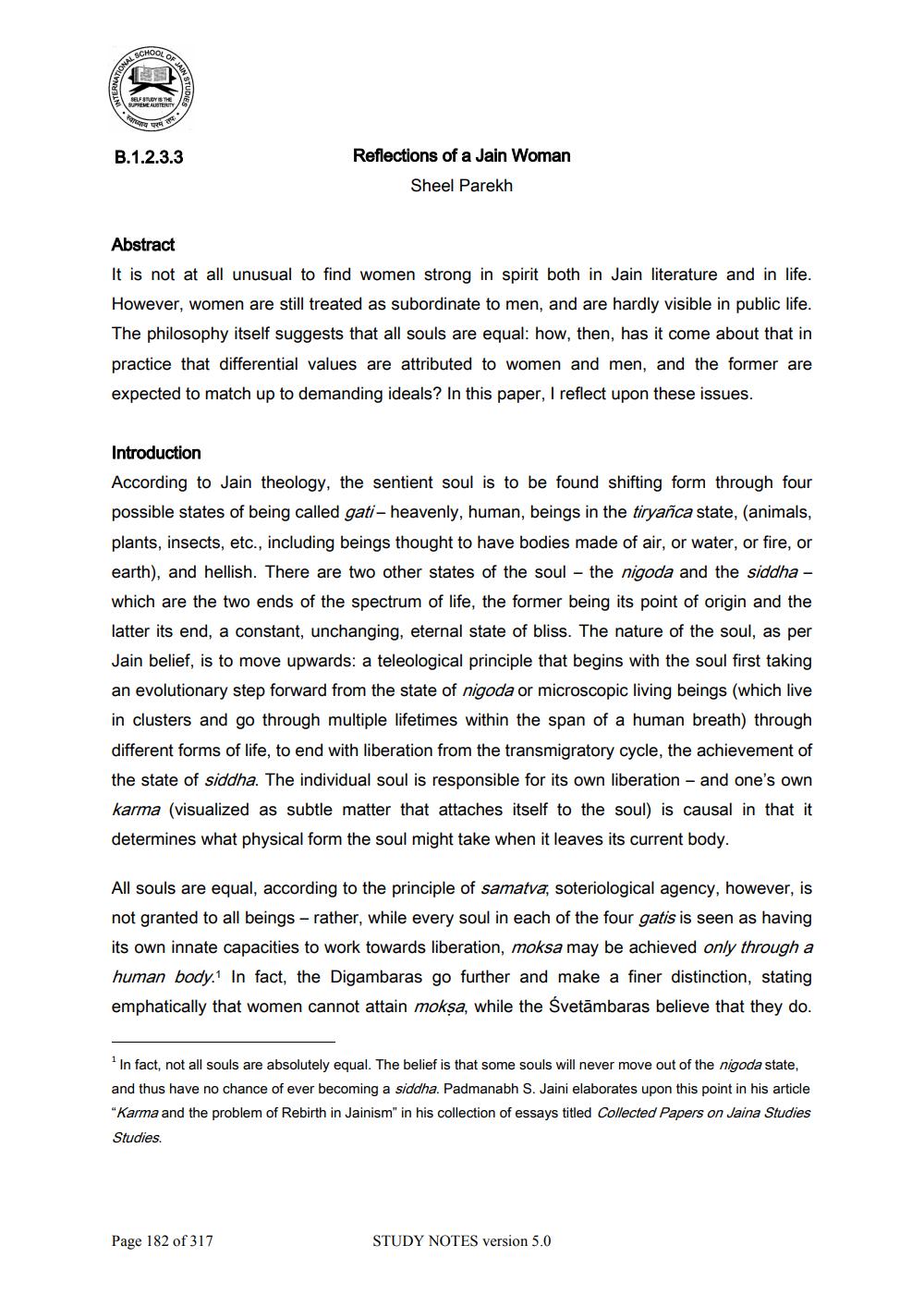________________
SCHOOL
TIONAL
OF
JAN STUDIES
SELF STUDY IS THE SUPREME AUSTERITY
स्वाध्याय परम तप
B.1.2.3.3
Reflections of a Jain Woman Sheel Parekh
Abstract
It is not at all unusual to find women strong in spirit both in Jain literature and in life. However, women are still treated as subordinate to men, and are hardly visible in public life. The philosophy itself suggests that all souls are equal: how, then, has it come about that in practice that differential values are attributed to women and men, and the former are expected to match up to demanding ideals? In this paper, I reflect upon these issues.
Introduction
According to Jain theology, the sentient soul is to be found shifting form through four possible states of being called gati-heavenly, human, beings in the tiryañca state, (animals, plants, insects, etc., including beings thought to have bodies made of air, or water, or fire, or earth), and hellish. There are two other states of the soul - the nigoda and the siddha - which are the two ends of the spectrum of life, the former being its point of origin and the latter its end, a constant, unchanging, eternal state of bliss. The nature of the soul, as per Jain belief, is to move upwards: a teleological principle that begins with the soul first taking an evolutionary step forward from the state of nigoda or microscopic living beings (which live in clusters and go through multiple lifetimes within the span of a human breath) through different forms of life, to end with liberation from the transmigratory cycle, the achievement of the state of siddha. The individual soul is responsible for its own liberation - and one's own karma (visualized as subtle matter that attaches itself to the soul) is causal in that it determines what physical form the soul might take when it leaves its current body.
All souls are equal, according to the principle of samatva, soteriological agency, however, is not granted to all beings - rather, while every soul in each of the four gatis is seen as having its own innate capacities to work towards liberation, moksa may be achieved only through a human body. In fact, the Digambaras go further and make a finer distinction, stating emphatically that women cannot attain mokṣa, while the Śvetāmbaras believe that they do.
1 In fact, not all souls are absolutely equal. The belief is that some souls will never move out of the nigoda state, and thus have no chance of ever becoming a siddha. Padmanabh S. Jaini elaborates upon this point in his article "Karma and the problem of Rebirth in Jainism" in his collection of essays titled Collected Papers on Jaina Studies Studies.
Page 182 of 317
STUDY NOTES version 5.0




